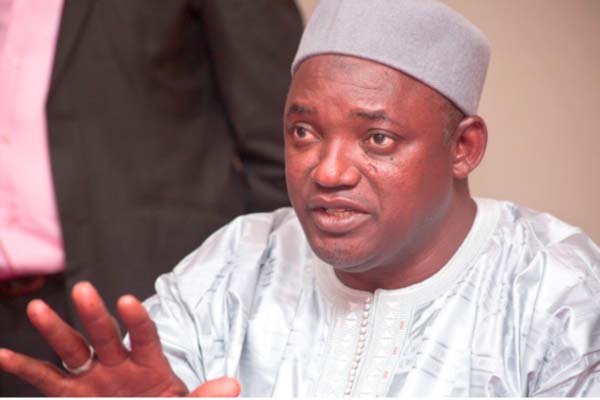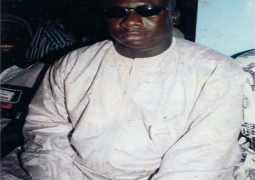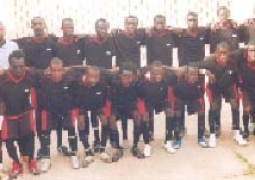
Gambia’s
President Adama Barrow has said the Commission of Inquiry is not set up to
witch hunt anyone but rather to probe numerous allegations of mismanagement of
public funds, abuse of office, and willful violations of public funds by the
ex-president and his associates.
Speaking
at the inauguration of the three-member commission, headed by veteran lawyer
Surahata B. Janneh, President Barrow said his government will stand firm for
truth and justice, no matter who it is for or against.
“We
are committed to the restoration of human rights, fair play and passion for
justice for all,” he said.
Barrow
reminded the commission members that their selection has been carefully vetted,
guided by competence, integrity and qualification, given the enormous task that
lies ahead of them.
Chartered
accountant Abiosseh George-Gaye and banker Bai Mass Saine were other members of
the commission. Proprietor of Jollof Tutors,
Alhagie Kurang is Commission Secretary and Amie Bensouda as its lead counsel.
The
commission has a three-month mandate which could be extended, if necessary.
The
president said: “Given your profile and
experience, I have full confidence that you will, in your impartial
deliberations, shed lights in the numerous allegations against the former
president and associates. You will also provide references to the state to help
address issues of alleged mass misappropriation of public funds.”
He
underscored the need for credible pointers and information as important in the
work of the commission, calling on the public to share information they know
would help this cause.
Justice
Minister Aboubacarr Tambedou said they took time to “identify very, very
credible professionals who are not in government and who have integrity”. It is
to ensure independence, impartiality and transparency for The Gambia and the
world.
“Proceedings
will be public and the government will not seek to influence their decisions or
proceedings in anyway,” he told journalists after the inauguration.
Commission
chairman, veteran lawyer Surahata B. Janneh said the commission is not a law
court and has no jurisdiction to hold a criminal trial.
“However,
we are empowered by law to make orders, adverse findings and recommendations
that may impinge on individual rights and privileges. Therefore, certain
characteristics of the commission are that we are independent; we totally
refuse to be beholden to any person or institution in performing our work,” he
said.
Their
second attribute, according to the chair, is that their attitude will be one
devoid of bias and prejudice.
“Every
subject of our inquiry shall have the right to instruct council to protect
their interests before the commission, including cross-examination of witnesses
to test their veracity,” he added.
“We
shall firmly adhere to the principle of fair hearing, the rule of natural
justice and equality before the law. Neither our attitude, nor our procedures,
nor our rulings shall be shaped or affected by any disparity in power, wealth
status, and influence,” he said.



